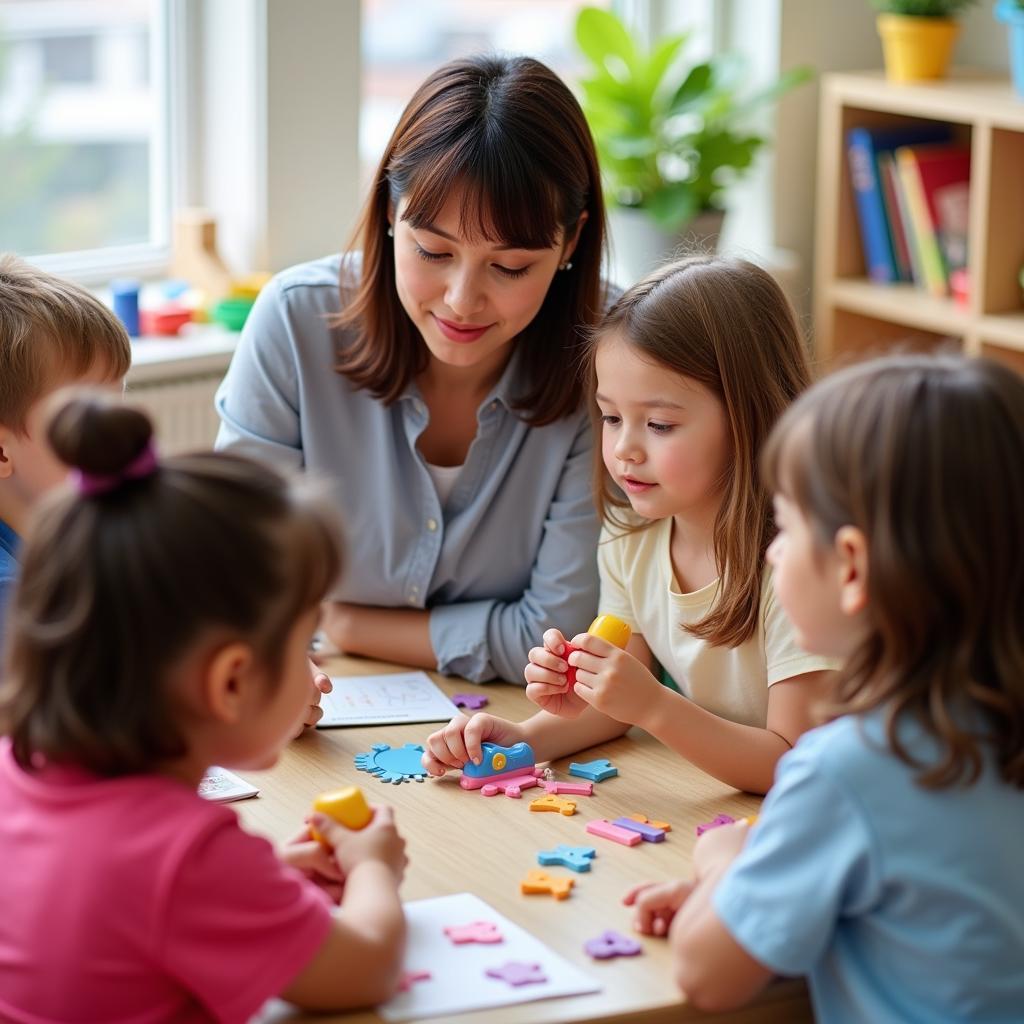“Nurture children from their early years,” the outcomes of early childhood education lay a strong foundation for their overall development later in life. It’s often said that the preschool stage is the “golden” period to nurture the best seeds for the future. Following this introduction, we will delve deeper into the importance of care and education for children during this stage. lĩnh vực phát triển thẩm mỹ cho trẻ mầm non
The Importance of Early Childhood Education Outcomes
Early childhood education outcomes are not just about children knowing how to read, write, or do math. It’s also about the harmonious development of physical, cognitive, language, emotional, social, and aesthetic aspects. A child who is well-cared for and educated will be confident, active, creative, and highly adaptable to their surroundings.
Holistic Development in Early Childhood
Ms. Nguyen Thi Lan, principal of Hoa Tra My 4 Kindergarten, once shared in her book “Nurturing the Future”: “Early childhood education is an art. We need to spark a passion for learning and discovery in children, helping them develop naturally and without constraints.” Indeed, the outcomes of early childhood education are clearly reflected in the holistic development of children. Children are healthy, agile, have good communication skills, and know how to express their emotions appropriately.
Assessing Early Childhood Education Outcomes
So how do we assess the outcomes of early childhood education? It’s not just based on scores, but also on observing a child’s progress in each area of development. A child who may not yet be fluent in reading and writing but is always eager to learn and curious to explore the world around them is also considered a commendable outcome.
 Assessing early childhood education outcomes through observation and evaluating children's progress
Assessing early childhood education outcomes through observation and evaluating children's progress
Assessment Criteria
The outcomes of early childhood education are assessed based on various criteria, including physical, cognitive, language, emotional, social, and aesthetic development. In addition, spiritual elements such as trust, gratitude, and sharing are also considered an important part of a child’s character formation. For example, our ancestors often taught “when drinking water, remember the source,” which is also a lesson in gratitude that children need to learn from a young age.
I remember one of my students, who was very shy and afraid of contact with strangers. After studying at school for a while, she became more confident and more sociable with friends and teachers. That is the outcome of early childhood education that we desire. học phí trường mầm non ttc elite sài gòn
Conclusion
The outcomes of early childhood education are a long journey, requiring patience, love, and dedication from families, schools, and society. “Children today, the world tomorrow,” let’s join hands to build a bright future generation. Please leave a comment and share this article if you find it helpful. You can also learn more about lời bài hát tạm biệt trường mầm non or Hoa Cuong Kindergarten. Contact us immediately at 0372999999 or visit us at 234 Hao Nam, Hanoi. We have a 24/7 customer care team.